Filter by
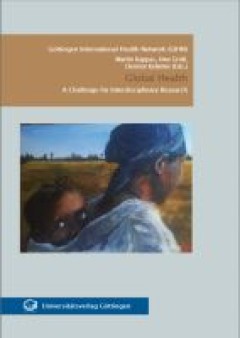
Global health : a challenge for interdisciplinary research
Human, animal and plant health is a field of work which offers opportunities for inter- and trans-disciplinary research. The whole topic bridges the natural and social sciences. Today, in a world of global environmental change it is widely recognized that human societies and their wellbeing depend on a sustainable equilibrium of ecosystem services and the possibility of cultural adaptation to g…
- Edition
- -
- ISBN/ISSN
- 9783863950477
- Collation
- iv, 400 p. : ill
- Series Title
- -
- Call Number
- 362.1 KAP g
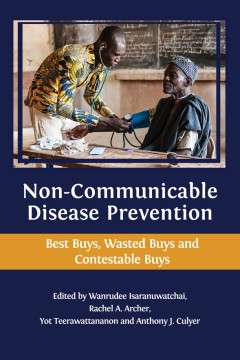
Non-communicable disease prevention: best buys, wasted buys and contestable buys
Non-communicable diseases (NCDs) are the leading cause of death worldwide, contributing to over 73% of all deaths annually. Each day NCDs cause more than 100,000 deaths, 80% of which occur in low- and middle-income countries. NCDs, however, are largely preventable, and a great deal of technical knowledge exists about how to prevent and manage them. Why, then, have we, as a global community, not…
- Edition
- -
- ISBN/ISSN
- 9781783748655
- Collation
- xxix, 181 p. : ill. : ind. ; 24 cm
- Series Title
- -
- Call Number
- 362.1 NON n
Urban transformations and public health in the emergent city
Urban transformations and public health in the emergent city examines how urban health and wellbeing are shaped by migration, mobility, racism, sanitation and gender. Adopting a global focus, spanning Africa, Asia, Europe and Latin America, the essays in this volume bring together a wide selection of voices that explore the interface between social, medical and natural sciences. This interdisci…
- Edition
- -
- ISBN/ISSN
- 9781526150943
- Collation
- xiii, 233 p
- Series Title
- -
- Call Number
- -
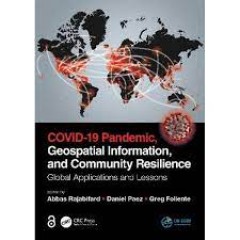
Covid-19 Pandemic, geospatial information, and community resilience: global a…
Geospatial information plays an important role in managing location dependent pandemic situations across different communities and domains. Geospatial information and technologies are particularly critical to strengthening urban and rural resilience, where economic, agricultural, and various social sectors all intersect. Examining the United Nations' SDGs from a geospatial lens will ensure that…
- Edition
- -
- ISBN/ISSN
- 9781003181590
- Collation
- xxvi, 532p.: ill.
- Series Title
- -
- Call Number
- 614.4 COV c
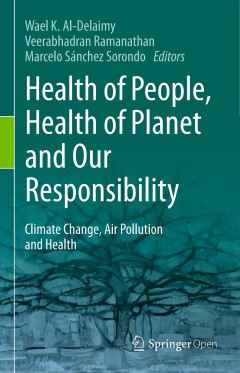
Health of people, health of planet and our responsibility : climate change, a…
This open access book not only describes the challenges of climate disruption, but also presents solutions. The challenges described include air pollution, climate change, extreme weather, and related health impacts that range from heat stress, vector-borne diseases, food and water insecurity and chronic diseases to malnutrition and mental well-being. The influence of humans on climate chang…
- Edition
- -
- ISBN/ISSN
- 9783030311254
- Collation
- xxiii, 417p. : ill.
- Series Title
- -
- Call Number
- 363.73874 HEA h
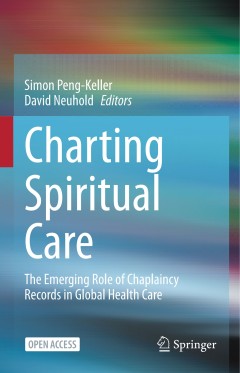
Charting spiritual care : the emerging role of chaplaincy records in global h…
This open access volume is the first academic book on the controversial issue of including spiritual care in integrated electronic medical records (EMR). Based on an international study group comprising researchers from Europe (The Netherlands, Belgium and Switzerland), the United States, Canada, and Australia, this edited collection provides an overview of different charting practices and expe…
- Edition
- -
- ISBN/ISSN
- 9783030470708
- Collation
- xv, 232p. : ill.
- Series Title
- -
- Call Number
- 259.4 CHA c
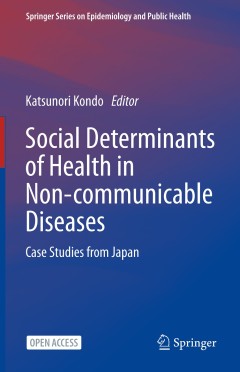
Social determinants of health in non-communicable diseases : case studies fro…
This open access book is the first compilation that reviews a wide range of social determinants of health (SDHs) for non-communicable diseases (NCDs) and healthy ageing in Japan. With the highest life expectancy and the largest elderly population in the world, Japan has witnessed health inequality by region and social class becoming more prevalent since the 2000s. The first half of this volume …
- Edition
- -
- ISBN/ISSN
- 9789811518317
- Collation
- xi, 328p. : ill.
- Series Title
- -
- Call Number
- 362.1 SOC s
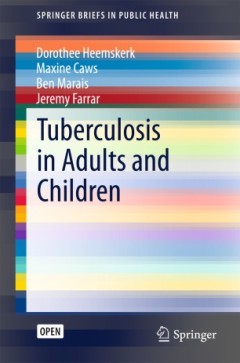
Tuberculosis in adults and children
This work contains updated and clinically relevant information about tuberculosis. It is aimed at providing a succinct overview of history and disease epidemiology, clinical presentation and the most recent scientific developments in the field of tuberculosis research, with an emphasis on diagnosis and treatment. It may serve as a practical resource for students, clinicians and researchers who…
- Edition
- -
- ISBN/ISSN
- 9783319191324
- Collation
- viii, 66p. : ill.
- Series Title
- -
- Call Number
- 616.995 TUB t
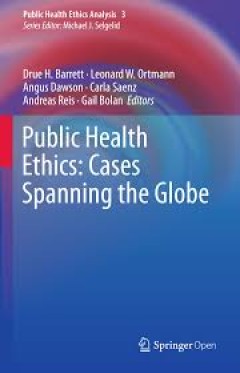
Public health ethics: cases spanning the globe
This Open Access book highlights the ethical issues and dilemmas that arise in the practice of public health. It is also a tool to support instruction, debate, and dialogue regarding public health ethics. Although the practice of public health has always included consideration of ethical issues, the field of public health ethics as a discipline is a relatively new and emerging area. There are f…
- Edition
- -
- ISBN/ISSN
- 9783319238470
- Collation
- pages cm
- Series Title
- -
- Call Number
- 610.696 BAR p
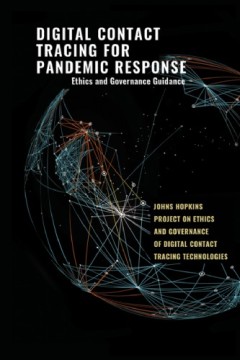
Digital contact tracing for pandemic response: ethics and governance guidance
As public health professionals around the world work tirelessly to respond to the COVID-19 pandemic, it is clear that traditional methods of contact tracing need to be augmented in order to help address a public health crisis of unprecedented scope. Innovators worldwide are racing to develop and implement novel public-facing technology solutions, including digital contact tracing technology. Th…
- Edition
- -
- ISBN/ISSN
- 9781421440637
- Collation
- 136 p.; 22 cm.
- Series Title
- -
- Call Number
- 614 DIG d
 Computer Science, Information & General Works
Computer Science, Information & General Works  Philosophy & Psychology
Philosophy & Psychology  Religion
Religion  Social Sciences
Social Sciences  Language
Language  Pure Science
Pure Science  Applied Sciences
Applied Sciences  Art & Recreation
Art & Recreation  Literature
Literature  History & Geography
History & Geography